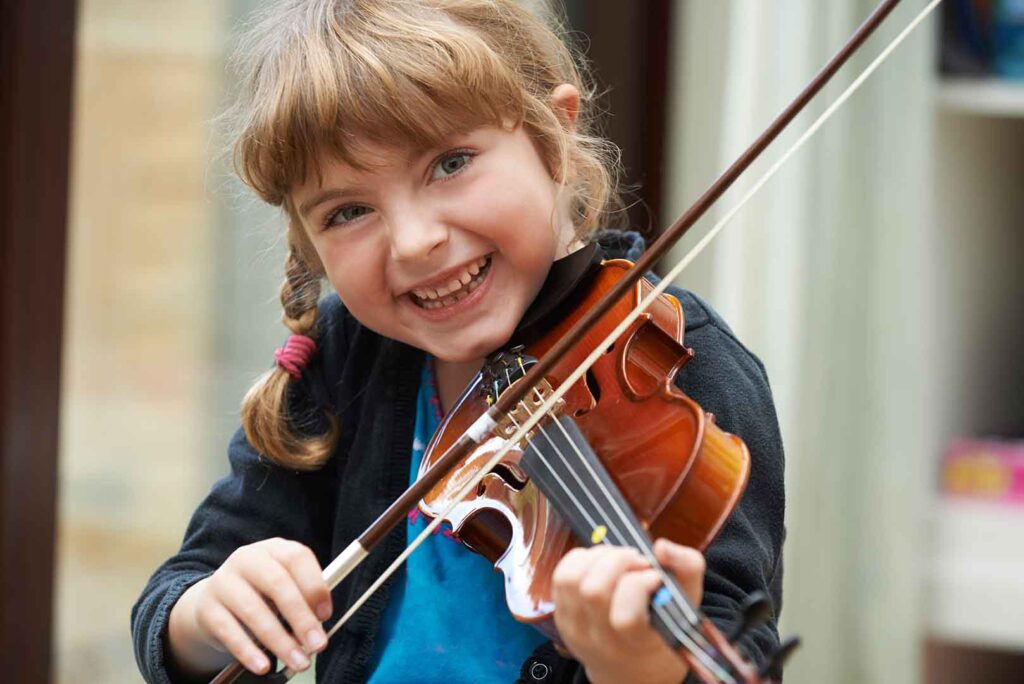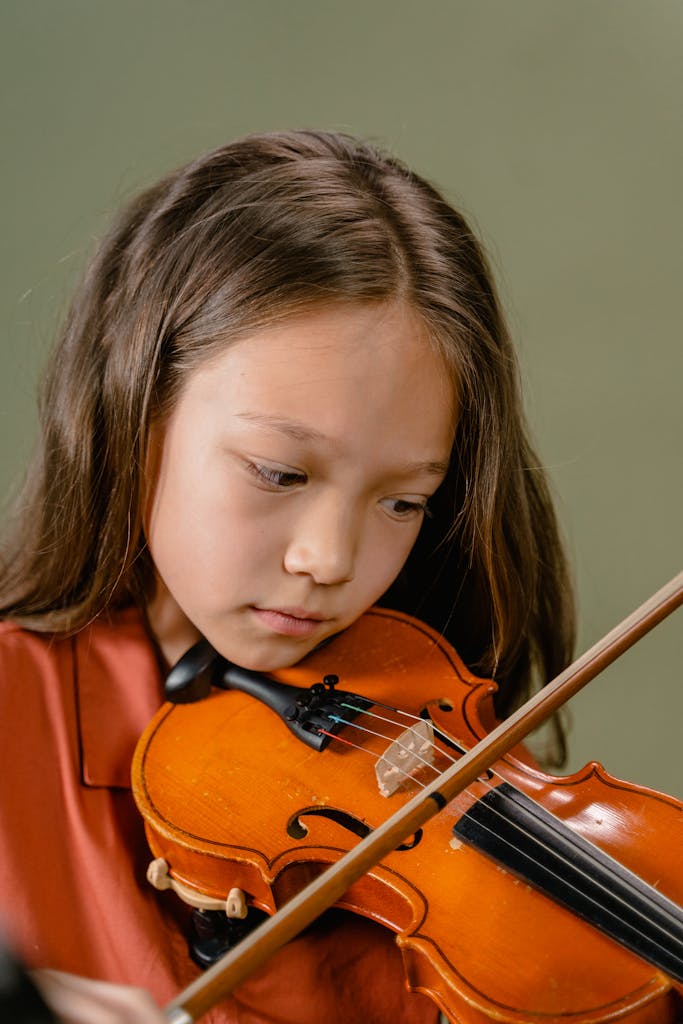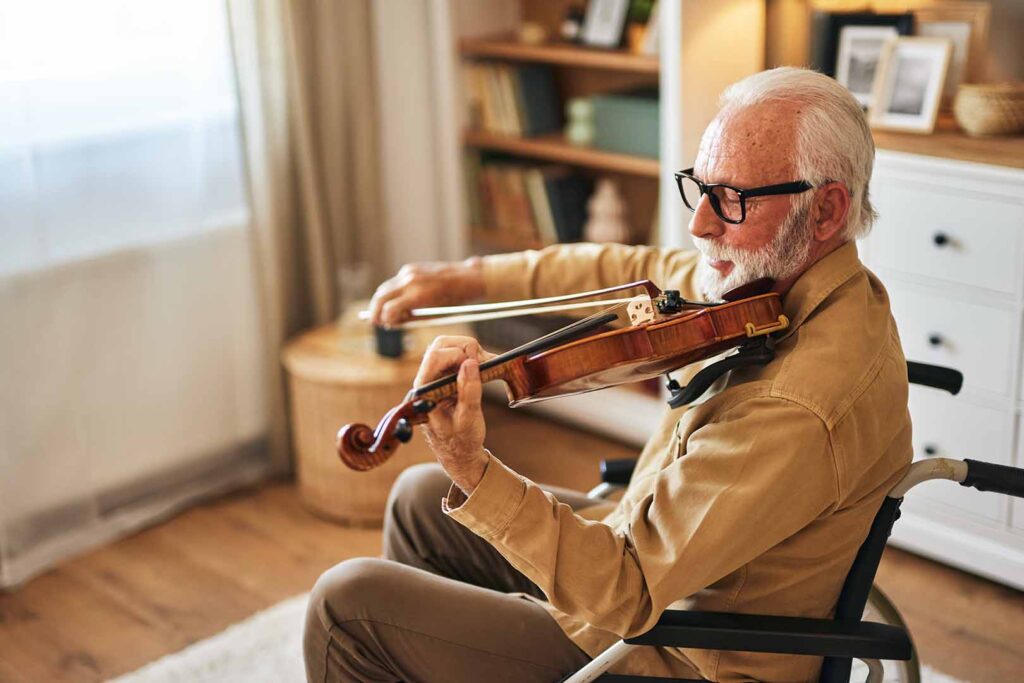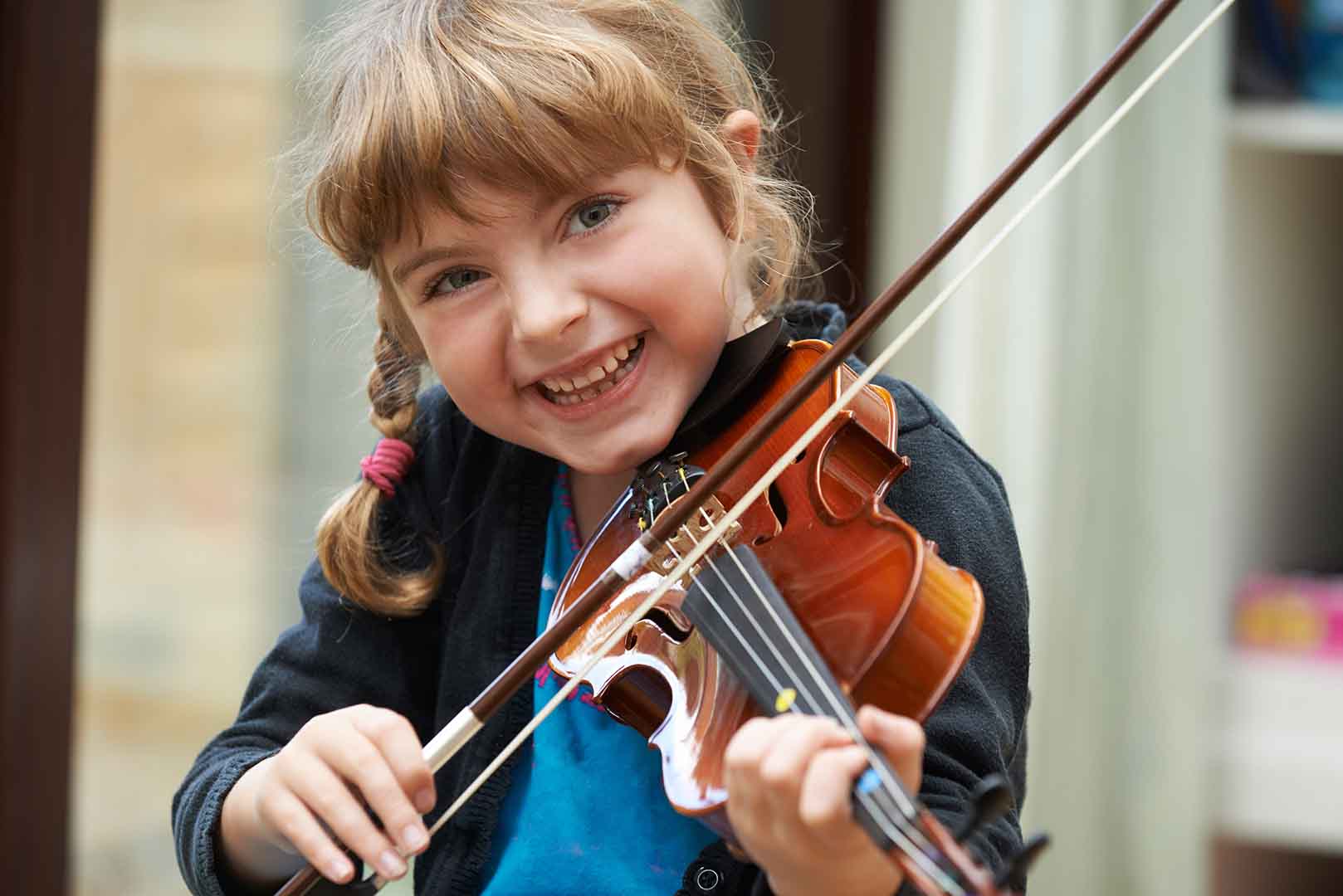What is the effect of musical practice?
In a world where stress and speed are omnipresent, turning to enriching activities such as music can offer a salutary refuge and invaluable benefits. This article explores the effect of musical practice. How learning string instruments such as the violin,viola, cello and double bass can transform the lives of adults and children alike, promoting well-being, personal development and emotional fulfillment.

Cognitive and motor stimulation
In children, learning to playstringed instruments makes a significant contribution to cognitive development. Studying the violin, for example, stimulates memory, attention and coordination, as well as the different brain regions involved in language and reasoning. Child musicians often show a greater ability to solve complex problems and think creatively.

Fine motor skills are also developed through regular practice of the viola or cello, as every position and movement of the fingers is essential to mastering these instruments. This improvement in hand-eye coordination benefits other activities requiring precision and control.
Development of perseverance and self-discipline
One of the most valuable lessons learned when learning music is the value of perseverance. Each instrument, with its unique challenges, teaches budding musicians that success is often the result of hard work and ongoing commitment.
Self-discipline is a crucial skill for any musician. It manifests itself in daily practice, preparation for recitals and managing stage fright. These skills, once integrated, greatly benefit the individual, both in his or her studies and professional life.

Emotional release and stress management
Learning the violin or viola, for example, offers adults a wonderful outlet for expressing their emotions. The complexity and beauty of these instruments allow for complete immersion, helping to relieve stress. By focusing on the nuances of each note, adults can also improve their concentration and presence, reducing the damaging effects of multitasking and constant distraction.

Regular practice of these instruments also develops patience and self-discipline, essential qualities for success in various areas of life. The technical and emotional challenges encountered when learning the cello or double bass can also reinforce perseverance and resilience.
How does musical practice affect age?
Learning and playing a musical instrument on a regular basis transcends the simple acquisition of artistic skills. These activities stimulate personal development at all ages. For the elderly, playing music effectively combats cognitive decline. It keeps the mind sharp and promotes an intellectually active life.

Music provides invaluable benefits, whether for growing youngsters or adults seeking to enrich their daily lives. It also preserves mental agility. Music sculpts the mind, enriches the soul and enhances the quality of life. Let's engage in this artistic practice for a life full of joy and vitality.
Learn from the pros
Playing the violin
Discover our educational services.
Mildor Violin
Discover our educational services.





![Ebony alto peg - Swiss model with ebony ball [black] - Diam 9,2 mm](https://lutherie.art/wp-content/uploads/2024/02/TB-E1B751-800x1000w-300x300.jpg)